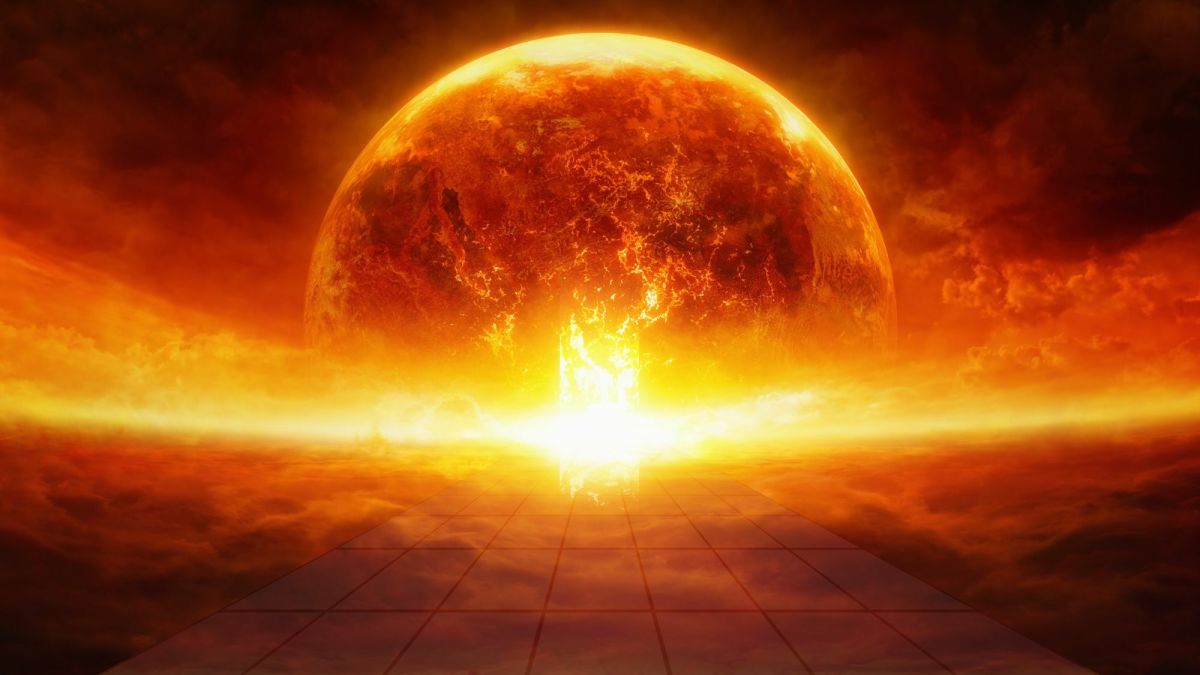The question of whether Bahá’ís believe in Hell prompts a multifaceted exploration of spiritual philosophy, the nature of existence, and the ultimate purpose of life from a Bahá’í perspective. Positioned within a rich theological framework, Bahá’í teachings cultivate a paradigm that transcends conventional interpretations of Heaven and Hell, offering novel insights that challenge traditional notions.
To understand Bahá’í beliefs about Hell, one must first appreciate the epistolary contributions of Bahá’u’lláh, the founder of the Bahá’í Faith. Distinct from many religious doctrines, Bahá’í teachings underscore that spiritual concepts such as Heaven and Hell are not purely physical locales but abstract states of being. This transformative perspective shifts the focus from punitive retribution to spiritual growth and development.
Central to Bahá’í belief is the idea that the hereafter is inherently linked to one’s actions and intentions in this world. Bahá’ís assert that the essence of Hell is a state of being where the soul experiences separation from God, often manifested through feelings of despair, regret, and spiritual decline. In this construct, Hell is not a place of eternal punishment; rather, it represents the inner turmoil resulting from a life unaligned with divine will and purpose.
In contrast, Heaven is conceptualized as a state of nearness to God, characterized by love, knowledge, and spiritual fulfillment. It is essential to note that this state can be experienced both in the physical world and the afterlife. For Bahá’ís, Heaven and Hell coexist as dual experiences contingent upon an individual’s spiritual choices and moral compass.
Moreover, the Bahá’í Faith places significant emphasis on the concept of divine justice, which serves as a foundational pillar in understanding both Heaven and Hell. Through God’s inherent wisdom, justice is applied not as mere punishment but as an opportunity for growth. According to Bahá’í teachings, even those who find themselves in the metaphorical depths of Hell have the potential for redemption and spiritual evolution, signifying that no soul is irrevocably damned.
This perspective presents a dynamic understanding of the afterlife, wherein Hell does not signify eternal damnation. Instead, it is a phase of purification, where the soul may engage in a process of self-reflection and repentance, allowing opportunities for eventual reunion with the divine. Such teachings echo the universal themes of love, forgiveness, and personal transformation, compelling believers to recognize and embrace their responsibilities in this world.
Additionally, the Bahá’í writings emphasize the importance of this earthly existence in preparing the soul for the afterlife. Life on Earth is seen as a unique opportunity to cultivate virtues, develop character, and engage with the divine. The choices made during this temporal phase have enduring significance, as they directly influence the soul’s journey post-mortem. It is thus imperative for Bahá’ís to lead lives marked by ethical integrity, social justice, and spiritual elevation, recognizing that their actions today resonate in the spiritual realm tomorrow.
Another significant aspect encapsulated in Bahá’í teachings is the notion of ‘progressive revelation,’ which asserts that God’s guidance is dispensed through a series of divinely ordained Manifestations throughout history. Each of these Manifestations—Moses, Jesus, Muhammad, and ultimately Bahá’u’lláh—contributes to humanity’s understanding of the divine, including insights on life, death, and the nature of existence.
Through this lens, disparate religious doctrines surrounding Hell take on a more coherent identity. Bahá’ís acknowledge the validity of various spiritual truths while understanding that interpretations can diverge significantly. This inclusiveness invites curiosity and fosters interfaith dialogue, transforming traditional perceptions and enriching the collective human experience.
As one grapples with the concept of Hell within the Bahá’í framework, it becomes increasingly evident that the focus pivots from fear of divine retribution to an embracing of divine love and the potential for transformation. Souls are viewed as inherently noble, perpetually in flux, capable of metamorphosis through divine grace and personal endeavor. This evolution offers hope and assurance, marking a crucial departure from despair towards aspirational enlightenment.
It is also essential to consider the implications of these doctrines on societal norms and moral imperatives. An understanding of Hell as a metaphor for spiritual estrangement could potentially catalyze a shift in behavior amongst individuals and collective communities, inspiring ethical living rooted in compassion and accountability. The imperative to uplift humanity underscores the interconnectedness of all souls, nurturing a global community where the alleviation of suffering and the promotion of peace become paramount.
In conclusion, Bahá’í teachings provide a profound and compassionate interpretation of Hell that fosters a deeper understanding of human existence and divine purpose. By framing Hell not as an absolute end but as a transitional experience reflecting one’s spiritual state, these teachings invite individuals to engage with their spiritual journey actively. Curiosity and introspection are encouraged, beckoning believers to explore the intricate tapestry of existence, allowing them to find solace and inspiration in the divine promise of growth, redemption, and the eternal pursuit of truth.
